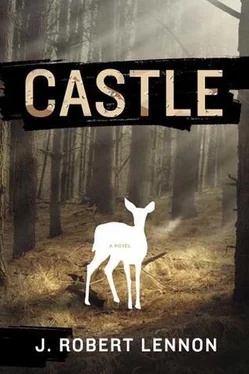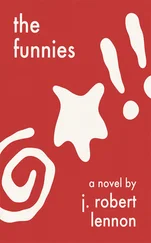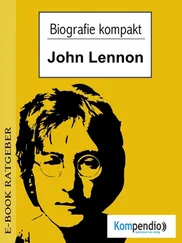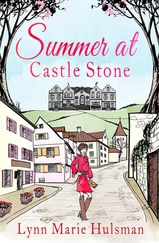In the midst of my drama of the year before, I was repeatedly counseled by my JAG attorney on the subject of what I should say during the hearings, which information I should volunteer, which I should keep to myself. I was coached at great length on how to tell my story so as to cast myself and my superiors in the best possible light, and at the time I regarded this advice as invaluable, and followed it to the letter. Indeed, the advice was correct, insofar as I was merely reprimanded and put on indefinite leave, and I ought to have felt gratitude and relief, and been proud to have made the best of a bad situation.
But then, as now, I felt this strange emptiness, this negation of self, as though there were some other course of action possible, one that might have produced a more satisfying outcome; and this possibility hounded me through my days of waiting and worry. Unfortunately, however carefully I considered and reconsidered my circumstances, I could not think of what this other course of action might be. Every day I was assured, both by my lawyer and by my commanding officer, that everything would work out fine, and the tacit assumption, which no one seemed to question, was that everything working out fine was what we all wanted. For what defendant, facing the accusations I faced, would not desire such an outcome? To be exonerated and set free in the world, to live at last in peace and quiet.
Today, in my newly renovated house, on the remote swath of forest that was mine and mine alone, I could not think of any better outcome. And yet I felt this uncertainty. That I might have assumed control of my destiny. That I might have defied my betters. That I might have saved my parents, or remained close to my sister, or averted the unfortunate circumstances that led to this drastic change in my relationship to the army.
The washing machine stopped, and I transferred my sheets to the dryer. I drank a glass of water, and stared out the living room window at the now-setting sun. When the dryer was finished, I tried to replace the sheets and blankets on my bed, and somehow, the act of stretching the fitted sheet over the mattress — tucking the fabric under each corner and smoothing down the wrinkles and folds — managed to drain every last bit of energy from my body. I fell onto the mattress and did my best to haul the bedclothes over myself, but it didn’t matter. Despite the early hour, I was asleep within minutes.
I awoke in darkness. The glowing digits of my bedside clock were missing, though I could barely discern its outline looming there beside my head; I must have unplugged it by mistake while I was making the bed. And clouds must have moved in to cover the moon, because its light was missing from the sky, save for the faintest glow emanating from the mist.
What had roused me? I was entirely awake and alert. I closed my eyes and strained to hear.
There — the scrape of metal, faint and muffled, as though from some distant part of the house.
I stood up, gulped a breath, and held it. My blood rushed in my ears.
I heard it again, and this time I recognized it — the rusty steel doors that led to the backyard from the cellar. Something was trying to get in.
I considered racing down the stairs, in an effort to intercept this intruder. But something led me to the window instead, the one that faced north, the same side the cellar door was on. I parted the curtains and thumbed open the lock, and as I reached down to pull up the sash, I heard the clatter of the open door against the stone abutment that supported it.
It was, as I have said, very dark. But in the faint light of the cloud-covered moon, I could make out a figure, climbing up the cement stairs and into the yard. It was not an animal, but a human figure, and before I could discern any of its features, it vanished into the shadows of the trees. I could make out some motion in the murk — the figure was headed for the forest edge.
Without hesitation, I spun from the window, dashed down the stairs, and threw open the door. In moments, I had arrived at the treeline, in the general area where I believed the figure to have disappeared. I remembered very clearly the impassible and quite hazardous deadfall that lay all over the forest floor, and my own struggle to penetrate more than thirty yards into the trees around my house. The night was cold, and I wore no shoes — to forge ahead would be foolish. Instead, I leaned in, my hand braced against a maple, and called out, “Who’s there!” I could see nothing — the darkness in the woods was total.
There was no reply. But I heard the rustle of branches. Against my better judgment, and with careful, halting steps, I moved past the tree into the blackness.
“Hello! Who are you!”
The forest was anechoic, and swallowed up my voice as neatly as a black hole. Nevertheless, I could still hear the intruder somewhere up ahead, the humus crunching under his feet.
His feet — for who else could it be?
“Doctor Stiles!”
Now the silence was deeper, longer, and pregnant with meaning. I waited one, two long minutes. And then, at last, I was rewarded with the sound of a footstep. Just one, and perhaps I was deceiving myself, but I believed it to be a step toward me. He could not have been far away, twenty feet at the most. Alarmed, I backed up, pressing myself against a tree — surely he was better equipped than I, this night, for a fight.
But his next step was fainter, and the next after that was fainter still. And soon it was clear that he had chosen not to return. I listened as the intruder retreated farther and farther into the trees. How he navigated the treacherous ground, I could not begin to imagine; but, like a creature of the forest, he moved quickly, and soon I couldn’t hear him at all.
Nevertheless, I stood there several minutes more, perfectly still; and I might have lingered even later, had I not felt, quite suddenly, the horrible totality of the blackness around me. I may as well have been in the cellar, or some dungeon or cave, for all I could tell; and when I turned to leave I realized that I could not see out of the woods any better than I could see into them, and for a moment I believed I was lost.
But no. I mastered myself, and moved forward, back the way I came, my hands out in front of me, groping for obstacles. And a minute later I found myself in the yard once again, standing over the grave of the white deer; and a minute after that I was back in my moonlit kitchen, panting from the effort of the chase.
It was then I noticed that the rock I used as a doorstop had been shoved aside, and the door to the cellar hung open. The stairs led crookedly down into the darkness. Unnerved, I quickly shut the door and replaced the rock. The intruder, I understood — and it was he, Doctor Avery Stiles, I was certain — had come into the house. I cast my eyes about, trying to discern why he had come, and it was not long before I found the answer. It lay on its side in the center of the kitchen table, an object the size and shape of a box of large wooden matches. I reached out, picked it up, and held it in my hand.
It was cool to the touch, heavy for its size. Its cast metal surface was black, the paint chipped and scratched by years of careless handling. The sight of it, its weight, seemed familiar, infecting me with a vague, gnawing unease. It was, in fact, a toy — a miniature locomotive.
Whatever the true meaning of this cryptic object, its general intent was clear. It was a taunt — perhaps even a threat. “Look what I was able to do,” the intruder was saying. “If I’d wanted to kill you, I could have.” I suppose I ought to have been grateful that I wasn’t murdered in my sleep. But instead, I became angry. Stiles might still have owned his little square of land behind the rock, but the rest of it, the rock itself, and this house were all mine now — fully, and as dictated by the law. If he felt that I was trespassing, somehow, on property he still thought of as his own, well then, perhaps he oughtn’t to have sold it to the state. In any event, these disturbing games would not intimidate me. Indeed, I did not intend to sit still, idly waiting for his next sortie against my home, my land, and my hard-earned sense of personal well-being. If he wanted to taunt and threaten, then I could play the same game. I could deliver a threat of my own.
Читать дальше











